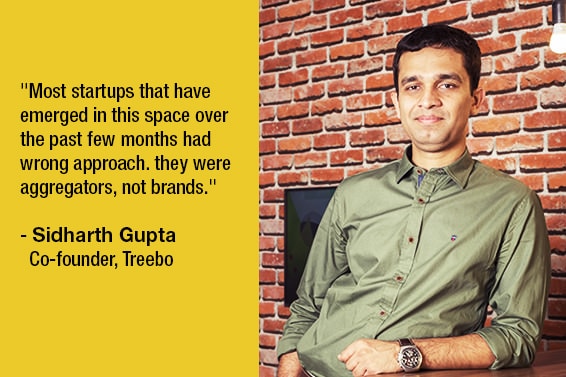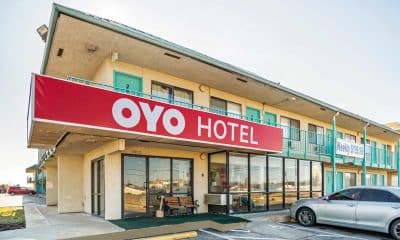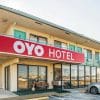In Conversation
Most people running hotels are not career hoteliers or professionals, but businessmen, says Sidharth Gupta, co-founder of Treebo Hotels
“When you are a budget traveler, for you, your hotel is a pit stop, not the destination itself. You wouldn’t want to spend much in a room you’ll barely spend time in. But chances are that rooms lower than Rs 2000 will have stained bed-sheets, torn towels, rude staff, unclean bathroom, and you might even end up in an unsafe place.”
“All three of us (the co-founders of Treebo) wondered, where was the surety in budget hotels like the branded ones? It was with this thought in mind that we started Treebo,” said Sidharth Gupta,co-founder of Treebo Hotels.
Treebo offers guaranteed quality across all aspects and facilities like free wifi, complimentary breakfast, friendly & prompt service, branded toiletries, and much more.
It is the location, which is the biggest factor and that every customer directly goes to the location where they want to stay, says Gupta.
“If a hotel is within their price range, only 26% customers select a hotel based on the exact price. Rest of them look for other quality related parameters. For example, 24% customers choose based on star rating, another 25% choose based on reviews from other guests. Remaining customers choose on the basis of amenities offered, brand, etc.”
Gupta believes they are the pioneer in this segment, the first hotel brand in the price range of Rs 1000-3000. Though there have been many startups emerged in the recent years, he believes they have had the wrong approach towards the core quality problem.
“They were all aggregators, not brands. They were contracting with hotel owners to sell a few of their rooms online, which was no different from what existing OTAs were already doing. We took a radically different approach and always focused on building a franchise-based brand, and not a run-of-the-mill aggregator. We are more similar to a Marriott than we are to a MakeMyTrip.”
“Unlike others, we didn’t sign-up thousands of hotels in a matter of months, rather we chose our hotel partners carefully to ensure each and every one of them can deliver our desired quality. Unlike others, we don’t just sign-up a property and then disappear from the action scene, rather our on-ground Quality Managers visit our partner properties every single day to conduct quality audits, staff training, issue resolution, and guest interactions,” added
The total hotels market in India is estimated to be ~$20B, and 50-60% of this is in the budget segment. Travel is a sector that benefits hugely from improving per capita incomes. Evidence from other countries suggests that when the per capita income of a country touches $1,500, there are some sectors that see breakaway growth.
“Tourism in India is the third largest foreign exchange earner of the country and therefore it has emerged now to be a sunrise industry and an employment generator in the country. As per DIPP data released, the hotel and tourism sector attracted around US$ 8.5 billion of FDI between April 2000 and September 2015.”
“Online bookings account for 16% of the hotel bookings currently and is expected to grow to 25% in 2016. It is estimated that 8.4 million Indians are likely to book hotels online by 2016, up from 3.5 million in 2014. India, after China, is considered as one of the most lucrative hotel markets in the world and has the second largest construction pipeline in Asia.”
The biggest challenge is the poor mindsets and capabilities, says Gupta. Most people running hotels are not career hoteliers or professionals, but businessmen who run the hotel as a side-business.
“There’s a very large base of customers who are looking for good quality at affordable prices but are not getting it. This is happening not because of economic constraints. The quality these people offer is average at best, and horrendous at worst. And because of this, they don’t get adequate patronage from customers resulting in low occupancy and low revenues – corresponding to just 45-50% occupancy – which further deters them from investing into the customer experience.”
Gupta believes that their intervention would enable the owner to maintain great quality and also market the property well under Treebo’s brand name and using their professional expertise.
“Our hotel partners manage the day-to-day operations of the property. Our Quality Managers audit these properties every day to ensure compliance with our standards. And, we take responsibility for generating sales for the property. Thus it is a win-win situation.”
Treebo is currently present in 25 cities with a network of 125 properties and 3200 keys. They plan to quadruple in the next 12 months growing to 500 properties in 60+ cities. They also have plans to be present in at least 100 to 150 Indian cities with a network of 1500+ hotels in over the next two and a half years.
“We take a share of the revenue generated at the property from the owner as our fee for licensing our brand and other expertise. This revenue share is in the range of 18-25%,” said Gupta.
Treebo announced a Series A investment of USD 6 million by SAIF Partners and Matrix Partners soon after launching in June 2015. It has recently raised $17M in a fresh round of series B funding from Bertelsmann India, Matrix Partners, and SAIF Partners.
“Our review scores on booking.com is 7.44 for the top 6 cities in the country. Our net promoter score (NPS) is 65% and TripAdvisor rating is 4. Our portfolio occupancy is as high as 75% and that too at healthy average room rates of 2,000+.”











































